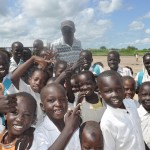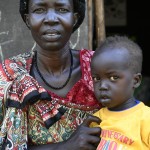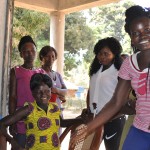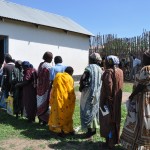Speeches Shim

In South Sudan’s far north, the Nile River port town of Renk has long been a crossing point for people heading north or south, sometimes fleeing conflict, sometimes heading back to their home areas during times of peace. Many people have become stranded there, as they lack even the modest funds needed to complete their journey.

When Nyantau Machoch and her six children arrived in Ethiopia’s Jewi refugee camp, they were relieved and grateful to receive nutrient-packed biscuits, the first food they had eaten in days. The family had traveled through the bush on foot from their home in war-torn South Sudan, as gunshots rang out around them. They survived on leaves and wild fruits, which filled their stomachs but made them sick.

Grace William, a female sex worker in Yambio, South Sudan, is visibly pregnant by a client who refused to use a condom. Like many female sex workers, she has been a target of violence. She is HIV-positive and has been on antiretroviral drugs for two years.
Richard Yona, 32, the first male midwife in Yambio, South Sudan, has helped mothers safely deliver countless babies over the past six years at the USAID-supported Bazungua primary health care clinic.

For one week each month, Clementina Peter Loku, a 56-year-old widow and resident of South Sudan’s capital city of Juba, walks daily to a local training center to take classes on practical life skills—including nutrition, hygiene promotion, home gardening, entrepreneurship and income generation strategies. In exchange, she receives a monthly cash transfer of approximately $45 that allows her to feed her family.


Comment
Make a general inquiry or suggest an improvement.